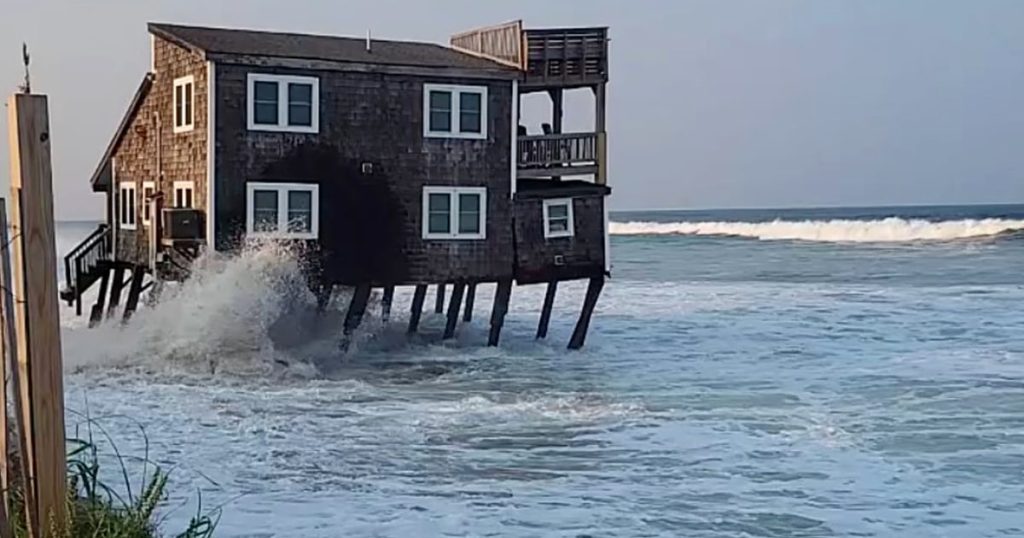A North Carolina home located in Rodanthe on Hatteras Island collapsed into the Atlantic Ocean on Friday, as seen in a dramatic video shared on Instagram. The video shows the home being knocked off its wooden foundation by powerful waves along the shore, resulting in a loud crash as it falls into the ocean and is lulled back and forth by the waves. Fortunately, the home was unoccupied at the time of the collapse, and there were no reported injuries, according to the National Park Service.
Following the incident, officials from the Cape Hatteras National Seashore and the Pea Island National Wildlife Refuge are urging visitors to avoid the beaches around Rodanthe. In addition, public entry from the northern boundary of Rodanthe up to the northern end of the Jug Handle Bridge has been closed as a precaution. Many other homes in the Rodanthe area have also sustained damages, and there is a risk of dangerous debris in the water and on the beach for more than a dozen miles along the coast.
The collapse of the home on Corbina Drive marks the seventh house collapse in the past four years along National Seashore beaches in North Carolina, highlighting the ongoing challenges posed by coastal erosion and rising sea levels. The National Park Service is coordinating with the home’s owner and plans to conduct debris removal efforts once elevated sea conditions subside next week. The incident underscores the need for continued monitoring and mitigation efforts to protect vulnerable coastal properties in the region.
As a result of the collapse and ongoing coastal flooding advisory, beaches in the area have been closed, with a coastal flooding advisory in effect for North Carolina’s Outer Banks, including Hatteras and Ocracoke islands, until 8 a.m. Monday. The heightened sea levels and powerful waves pose a risk to coastal communities and infrastructure, prompting authorities to take necessary precautions to ensure public safety and minimize further damage to properties along the coast.
The incident serves as a stark reminder of the dynamic and unpredictable nature of coastal environments, where erosion, storms, and rising sea levels can lead to sudden and catastrophic events like the collapse of homes into the ocean. It underscores the importance of proactive measures to address coastal vulnerabilities, such as shoreline protection, beach nourishment, and building setbacks to reduce the risk of property damage and loss. The National Park Service will continue to work with local stakeholders to monitor and respond to coastal hazards in order to safeguard communities and natural resources along the North Carolina coast.
Ultimately, the collapse of the home in Rodanthe highlights the ongoing challenges faced by coastal communities in the face of climate change and sea level rise. It serves as a sobering reminder of the need for adaptive strategies and sustainable development practices to protect vulnerable coastal areas and ensure the resilience of coastal communities in the face of future environmental threats. By working together to address these challenges, stakeholders can help mitigate the impacts of coastal hazards and safeguard the long-term well-being of coastal communities and ecosystems in North Carolina and beyond.


